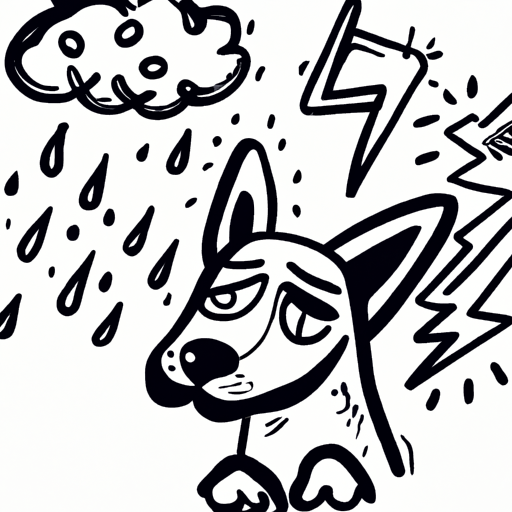As a caregiver to a faithful canine companion, understanding their behavior is essential to ensuring their health and happiness. One issue that may leave you feeling particularly distressed is when your dog starts throwing up. While it’s easy to assume this is a sign of a physical ailment, did you know that stress can also cause this symptom in dogs? Yes, dogs can throw up when they’re stressed. Let’s delve deeper into this subject to better understand and care for our furry friends.
What Causes Stress in Dogs?
Just like humans, dogs can experience stress due to a variety of reasons. Some common triggers include:
- Changes in environment or routine
- Introduction of new people or animals
- Loud noises such as thunderstorms or fireworks
- Separation from their human companions
Understanding your dog’s stress triggers is crucial in managing their stress levels and preventing instances of vomiting.
How Stress Leads to Vomiting in Dogs
The connection between stress and vomiting in dogs revolves around the body’s fight-or-flight response. When a dog is stressed, their body releases adrenaline, a hormone that prepares their body to either fight or run away from a perceived threat.
But when this adrenaline isn’t used up — for instance, if the stressor is something they can’t physically fight or run from, like a change in routine — it can lead to a number of physical symptoms, including upset stomach and vomiting.
Symptoms of Stress-Induced Vomiting
Stress-induced vomiting in dogs isn’t usually an isolated symptom. You’ll often notice other signs of stress in conjunction with vomiting. These might include:
- Loss of appetite
- Excessive panting or salivating
- Diarrhea
- Agitation or restlessness
These symptoms can vary in severity depending on the level of stress your dog is experiencing.
How to Help a Stressed and Vomiting Dog
As a caregiver, your immediate concern when your dog is vomiting due to stress will naturally be to alleviate their distress. Here are some steps you can take:
- Remove or minimize the stressor, if possible.
- Maintain a calm environment. Dogs can pick up on human stress, so it’s essential to remain calm and composed.
- Consult your vet. They may suggest dietary changes or prescribe medication to help manage your dog’s symptoms.
- Consider behavior modification techniques or training. A professional dog trainer or behaviorist may be able to help teach your dog coping mechanisms for stress.
| Step | Action |
|---|---|
| 1 | Remove or minimize the stressor |
| 2 | Maintain a calm environment |
| 3 | Consult your vet |
| 4 | Consider behavior modification techniques or training |
FAQs
Q: Can dogs throw up from anxiety?
Yes, just like stress, anxiety can cause physical symptoms, including vomiting, in dogs.
Q: How can I tell if my dog is stressed?
Aside from vomiting, signs of stress in a dog may include excessive panting or salivating, diarrhea, loss of appetite, and behavioral changes such as agitation or restlessness.
Q: How can I help my dog manage stress?
You can help your dog manage stress by removing or minimizing the stressor, maintaining a calm environment, consulting your vet for possible medical interventions, and considering behavior modification techniques or training.
Q: How long does stress-induced vomiting last in dogs?
This can vary greatly depending on the cause and severity of the stress. If your dog continues to vomit for more than a day, it’s crucial to consult your vet.
Remember, as a caregiver, your understanding and response to your dog’s stress can make all the difference. Always consult with a professional if you’re concerned about your pet’s health.



